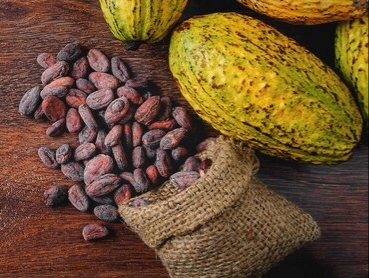Top 5 Agricultural Exports Boosting Nigeria’s Economy

Nigeria, often referred to as the “Giant of Africa,” boasts a rich agricultural landscape that plays a vital role in its economy. With its diverse climate and fertile land, the country produces a variety of crops and livestock. Agriculture remains a cornerstone of Nigeria’s economy, providing employment opportunities and contributing significantly to foreign exchange earnings. Here are five key agricultural exports that are currently boosting Nigeria’s economy.
1. Cocoa
Overview:
Cocoa is one of Nigeria’s oldest agricultural exports and has long been a crucial contributor to the nation’s economy. The country ranks as one of the largest producers of cocoa beans globally, primarily in the southwestern regions like Ondo and Ekiti States.
Economic Impact:
Cocoa contributes significantly to Nigeria’s export revenue and provides livelihoods for millions of farmers. The increasing global demand for cocoa products, particularly in the chocolate industry, continues to drive growth. With investment in better farming practices and technologies, Nigeria can increase its production capacity and enhance its position in the global market.
2. Palm Oil
Overview:
Nigeria was once the largest producer of palm oil in the world before the 1970s but has since experienced competition from other producing countries. However, the country remains a top player in palm oil production, with the main cultivation areas in the Niger Delta region.
Economic Impact:
Palm oil is in high demand for cooking, industrial uses, and as a source of biofuel. The Nigerian government has recognized the potential of palm oil to drive economic growth and has encouraged investments in this sector. Revitalizing palm oil production can significantly boost Nigeria’s economy and help achieve self-sufficiency.
3. Yams
Overview:
Nigeria is the largest producer of yams in the world, with the crop being a staple food in many Nigerian households. It is predominantly grown in the southern and central regions of the country.
Economic Impact:
Yams are not only a crucial part of the local diet but are also a significant export commodity. With increasing international demand, particularly in the UK and the US, yam exports have the potential to contribute substantially to Nigeria’s economy. Improved preservation and packaging methods can help farmers tap into these lucrative markets.
4. Cashew Nuts
Overview:
Cashew nuts are increasingly becoming one of Nigeria’s top agricultural exports, with the country ranking among the leading producers globally. The main production areas include Kogi, Benue, and Ekiti States.
Economic Impact:
The global demand for cashew nuts has surged, providing Nigerian farmers with a profitable export opportunity. The government’s efforts to support the cashew industry, including processing and value addition, can lead to increased earnings for farmers and further economic growth.
5. Ginger
Overview:
Nigeria is among the top producers of ginger in the world, particularly in states like Kaduna, Kano, and Jos. The country’s favorable climate and rich soil contribute to the high quality of Nigerian ginger, making it highly sought after in international markets.
Economic Impact:
The demand for ginger, both as a spice and for its medicinal properties, continues to grow globally. This has created opportunities for farmers and exporters. The Nigerian government is working to enhance the cultivation, processing, and exportation of ginger, which can significantly impact rural livelihoods and the economy.
Agriculture remains a vital sector for Nigeria’s economic growth and development. By focusing on these key agricultural exports, Nigeria can enhance its foreign exchange earnings, create jobs, and promote sustainable agricultural practices. As the country continues to invest in agricultural technology and infrastructure, it has the potential to become a leading player in the global agricultural market, contributing significantly to its economy and improving the lives of millions of Nigerians.



